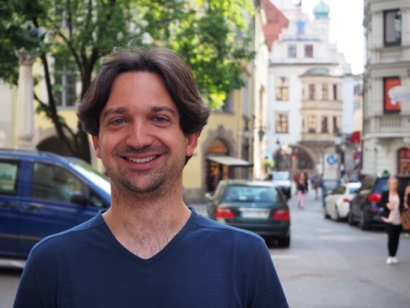Dr. Eduardo Morales wins the 19th Banco Sabadell Foundation Award for Economic Research

- Eduardo Morales has been recognised for his research work on companies’ strategic decisions and how they contribute to their export performance and capacity for innovation.
- The Banco Sabadell Foundation Award for Economic Research, with prize money of €30,000, recognises research work in the fields of economic, business and social knowledge.
- “The capacity of companies to be more productive and achieve greater success in foreign markets depends, fundamentally, on two variables: investment in innovation and development, and their ability to obtain information about the nature of competitors and consumers in different markets”, Dr. Eduardo Morales.
 The Banco Sabadell Foundation Award for Economic Research aims to encourage and recognise the work of researchers in the fields of economic, business and social knowledge and to contribute to the analysis and formulation of alternatives for the promotion of social well-being. Its first edition took place in 2002 and it is awarded annually.
The Banco Sabadell Foundation Award for Economic Research aims to encourage and recognise the work of researchers in the fields of economic, business and social knowledge and to contribute to the analysis and formulation of alternatives for the promotion of social well-being. Its first edition took place in 2002 and it is awarded annually.
Having reviewed the 18 entries received, the jury of the 19th Edition of the Banco Sabadell Foundation Award for Economic Research recognised Dr. Eduardo Morales as the winner of the 2020 award, with prize money of 30,000 euros, for his research work on companies’ strategic decisions and how they contribute to their export performance and capacity for innovation.
Dr. Morales is one of the most outstanding researchers in the field of international trade. Much of his research work explains what it is that makes certain companies more productive than others or more successful at expanding into new markets, by considering how they frame their expectations in situations featuring incomplete information and uncertainty. For example, he has explained the origin of the so-called Spanish “export miracle” of 2009-2013, based on the performance of individual companies. He has also studied racial segregation in the United States from an innovative perspective, looking at whether different racial groups frequent the same urban consumption points, such as restaurants, as opposed to simply considering their residential locations. His work also involves an innovative methodological component through the application of econometrics to certain questions.
His research has appeared in the most prestigious international academic publications.
